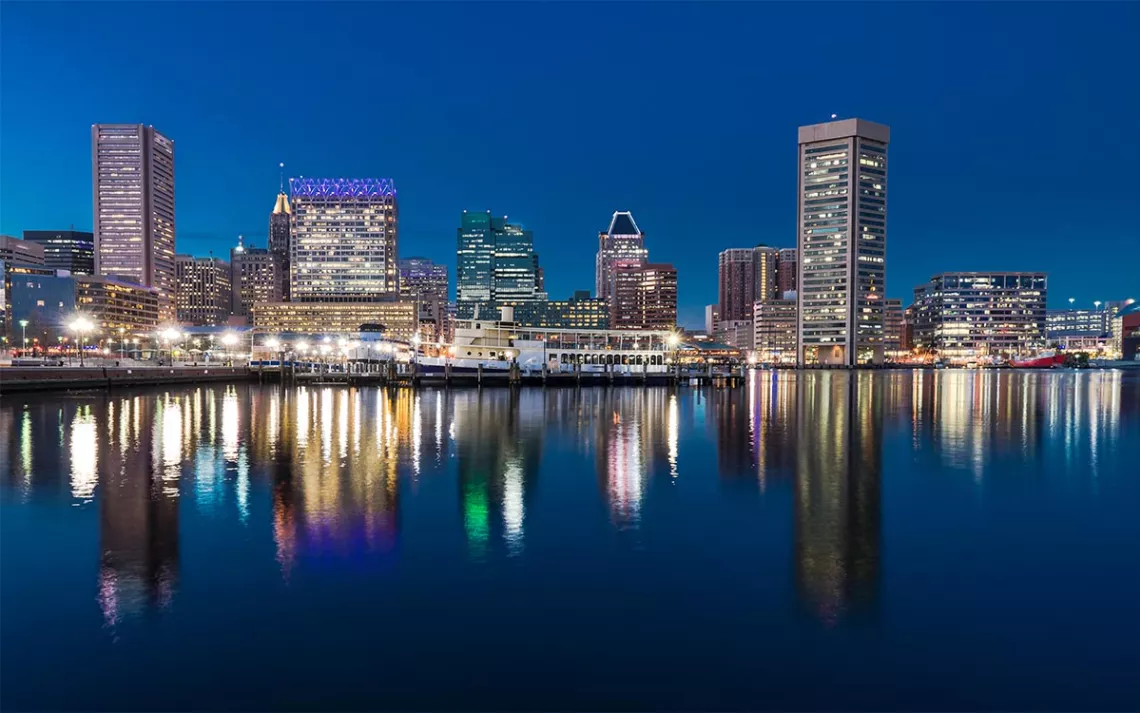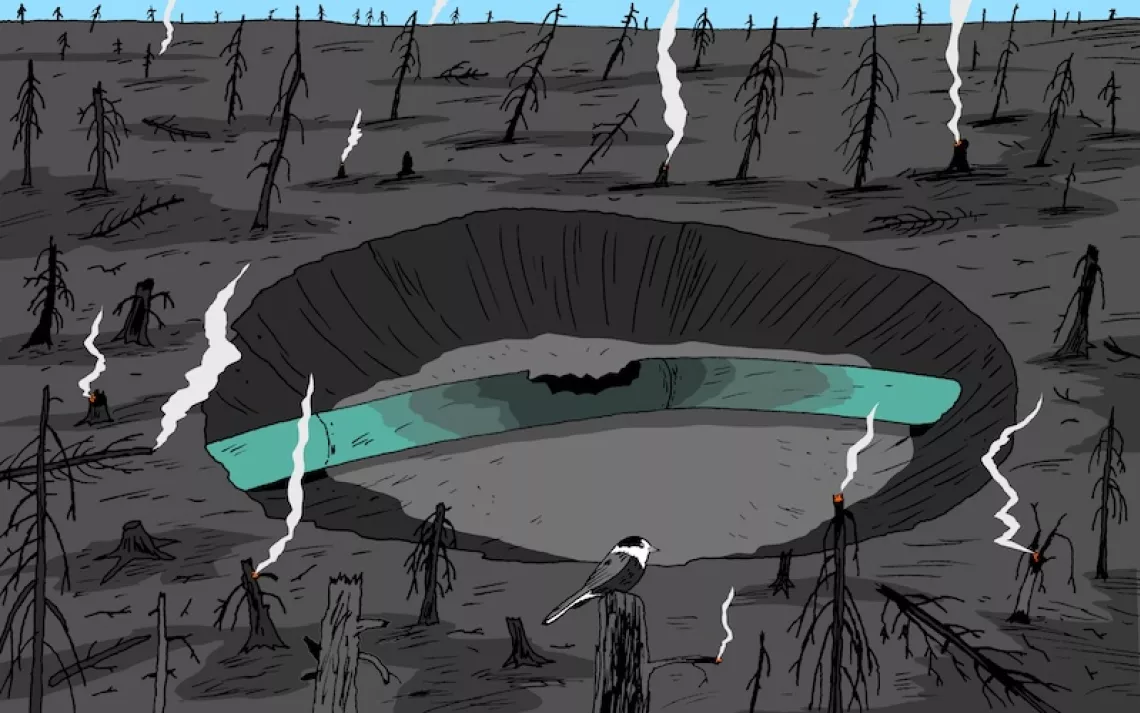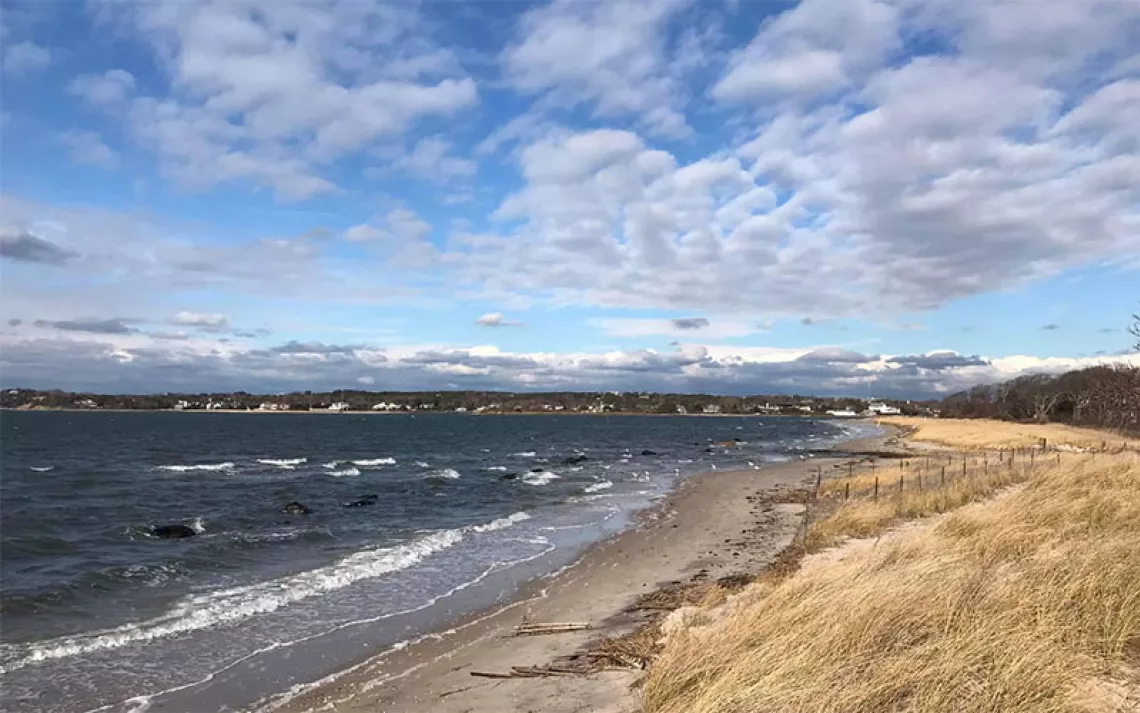Baltimore Becomes Latest Local Government to Sue Big Oil for Climate Change
Scholars say state suits have a better chance of success, compared to federal suits

Photo by pabradyphoto/iStock
The drumbeat of demands to hold the major carbon polluters liable for climate change-related destruction is getting louder.
On Friday, Baltimore became the latest local government in the United States to file a lawsuit seeking to recover damages from some of the largest corporations fueling global warming. The 138-page lawsuit, filed in Maryland state court, argues that Baltimore—a city with 60 miles of waterfront and one of the busiest ports on the East Coast—has already incurred climate change-related damages from sea level rise and extreme rain events. The defendants are 26 major oil and gas companies, including ExxonMobil, Chevron, BP, Royal Dutch Shell, and ConocoPhillips.
The lawsuit was announced this morning during a press conference at Baltimore City Hall that included Mayor Catherine Pugh and City Solicitor Andre Davis, a former federal prosecutor and judge.
“For 50 years, these companies have known their products would cause rising seas and the other climate change-related problems facing Baltimore today,” Davis said. “They could have warned us. They could have taken steps to minimize or avoid the damage. In fact, they had a responsibility to do both, but they didn’t, and that’s why we are taking them to court.”
The introduction to the Baltimore complaint reads:
Defendants, major corporate members of the fossil fuel industry, have known for nearly a half century that unrestricted production and use of their fossil fuel products create greenhouse gas pollution that warms the planet and changes our climate. They have known for decades that those impacts could be catastrophic and that only a narrow window existed to take action before the consequences would be irreversible. They have nevertheless engaged in a coordinated, multi-front effort to conceal and deny their own knowledge of those threats, discredit the growing body of publicly available scientific evidence, and persistently create doubt in the minds of customers, consumers, regulators, the media, journalists, teachers, and the public about the reality and consequences of the impacts of their fossil fuel pollution. At the same time, Defendants have promoted and profited from a massive increase in the extraction and consumption of oil, coal, and natural gas …
Baltimore’s lawsuit is the 13th such legal challenge to be brought by local governments against the major carbon polluters. Since the beginning of this year, cities and counties in California, Colorado, and Washington have filed climate change-related lawsuits against oil, gas, and coal companies. Earlier in July, Rhode Island became the first state to file a climate liability lawsuit. (For more, see Sierra’s May/June cover story, “The Case for Climate Reparations.”)
Yet even as the number of legal challenges to the carbon polluters increases, the effort to hold the fossil fuel corporations accountable for climate change has seen some setbacks. In June, a federal district court judge dismissed a similar climate change lawsuit brought by the cities of San Francisco and Oakland. And just yesterday, July 19, a federal judge in Manhattan dismissed New York City’s climate change lawsuitagainst the largest oil companies.
"The immense and complicated problem of global warming requires a comprehensive solution that weighs the global benefits of fossil fuel use with the gravity of the impending harms," U.S. District Court Judge John Keenan wrote in his decision, which closely echoed the earlier decision from the federal court in California.
The two federal court decisions will have no direct bearing on the other climate change lawsuits, all of which have been filed in state courts and whose claims are based on state public nuisance laws.
“Federal law is much less favorable for the government plaintiffs than state law is. So these decisions are not very surprising,” Ann Carlson, a professor of climate change and environmental law at the UCLA School of Law, wrote to Sierrain an email. “The remaining cases are in state court and likely to be decided under state laws. They have a higher chance of success because of more favorable state doctrine—this is especially true in California.”
At Friday’s press conference, Baltimore city solicitor Andre Davis underscored the importance of legal venue. “We are asserting our claims in state laws, and we will be making vigorous claims, meritorious claims, in state court,” he said. “We intend to prosecute this case through to the end.”
Environmentalists expressed anger over the dismissal of the New York City suit. “The fossil fuel company defendants claimed in court—and the judge apparently agreed—that it is entirely up to Congress and the president to address climate change,” Ken Kimmel, president ofthe Union of Concerned Scientists, said in a statement. “But these same defendants and their trade groups have fought successfully against even modest laws and regulations to cut the carbon pollution from burning fossil fuels that causes global warming. My grandmother would have called this ‘chutzpah.’”
Kimmel also points out that the climate liability suits are not about “solving” global warming—but rather about seeking compensation for climate change-related damages that have already occurred. Baltimore’s experience illustrates the point: In just the past two years, the city has experienced two separate 1,000-year storms that brought torrential rain and flooding. During the July 2016 rain and floods, businesses and homeowners suffered tens of millions of dollars worth of damages. Two people lost their lives.
 The Magazine of The Sierra Club
The Magazine of The Sierra Club







